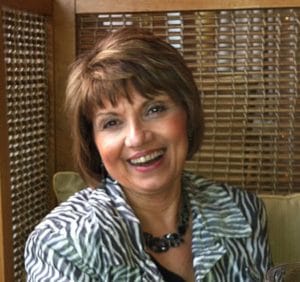
(By Deborah Parenti) Two steps forward. One step back. That’s how it’s been with the pandemic. Just when we thought it was safe to come out of the harbor, a variant called delta has whipped up more storm clouds. Only this time, rather than rushing back to safe havens, we find ourselves trying to sail carefully around and through it. We have vaccines offering some measure of security, at least against worst cases of the deadly virus, we have masked up again, and we’ve mastered the art of fist bumps, albeit some at a six-foot distance.
And as life has stumbled into a new normal, as listening levels have snapped back, and retail on Main Street is cautiously reopening, there is a hopeful sense we can do anything if we set our minds to it. Which is not to ignore the divisions among us, many of them playing out on radio, especially Talk radio, today. Tune in and you’ll hear what typically boils down to starkly contrasting opinions. Most can be summed up as “my way or the highway.” What’s missing is nuance, and because nothing is usually all one way or the other, nuance is important. It adds context and it opens the door to conversation, civil if done right, and yes, sometimes even collaboration in the end.
So reading the recent FCC “Fifth Report on Ownership of Broadcast Stations” is disappointing and frustrating. The report lays out in stark numbers radio’s abysmal record on ownership diversity. Which is unfortunate because understanding and aggregating all of the views and opinions of our melting pot of communities could be better served if a more proportionate number of the owners were from and/or are part of those communities.
Women comprise over 50% of the population but majority-own a mere 8% of commercial stations. While that sinks in, consider the largest ethnic group in the country, Hispanics/Latinos. With 18.5% of the population, they nonetheless enjoy a majority ownership interest in only 6% of commercial broadcast stations. Meanwhile, African Americans and Blacks, who represent 13.4% according to the latest census, hold a measly 4% majority interest in stations.
Minority-owned stations are a vital link on several levels. They not only offer diversity of ownership, important in itself, but they also yield the greatest potential for providing those opinion and perspective nuances; ones that inform, educate, and inspire. They also superserve communities in desperate need of a voice that truly mirrors them and that articulates their concerns, their dreams, and the realities they face.
Improving the statistics on ownership should be a concern of every broadcaster who subscribes to the basic tenet behind every license: to serve the “public interest, convenience, and necessity.” And they should actively support the proposed H.R. 4871, the Expanding Broadcast Opportunities Act of 2021, designed to improve ownership representation across the board. Introduced by North Carolina Democrat G.K. Butterfield, the legislation would reestablish the FCC’s Minority Tax Certificate Program. On the Senate side, S.2456, the Broadcast VOICES Act, introduced by Sens. Gary Peters (D-MI) and Robert Menendez (D-NJ) is a similar proposal.
Supported by the NAB, state associations, nine former FCC chairs, and other organizations, these bills come at a crucial time, especially now when social media, lacking checks and balances, is overloaded with rumor and misinformation readily available to unsuspecting masses. Nothing is perfect, but I’ll put radio’s news credibility (news, not opinion) up against totally unregulated sources any day of the week. And while cheering the Supreme Court’s ruling in FCC v. Prometheus Radio Project, it is noteworthy to mention that decision also rejected arguments that the FCC needed to go to greater lengths to study and support the impact of its ruling on minority and female ownership diversity. For over a year, we’ve heard the refrain “We’re in this together.” We need to ensure that the “we” includes all of us at every level.
Deborah Parenti is Publisher of Radio Ink. She can be reached at [email protected]






